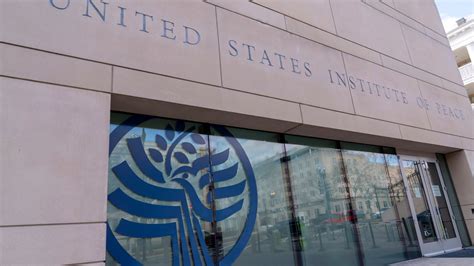DOGE Investigation Uncovers Alleged Financial Misconduct at U.S. Institute of Peace

The Department of Government Efficiency (DOGE), led by Elon Musk, has thrust the U.S. Institute of Peace (USIP) into the national spotlight following a contentious investigation that alleges the institute paid over $2 million to an outside accountant to erase evidence of illicit financial dealings.
But DOGE recovered the data, as Musk wrote on X: “They deleted a terabyte of financial data to cover their crimes, but they don’t understand technology, so we recovered it.”
The now-recovered data points to payments made to Afghan and Iraqi warlords, purportedly to safeguard drug trade operations in the region—an explosive accusation that has sparked outrage and calls for accountability.
The investigation began weeks ago when DOGE operatives, backed by the Trump administration, forcibly entered the USIP headquarters in Washington, D.C., after days of resistance from institute staff. With assistance from the FBI and Metropolitan Police, DOGE gained access to the facility on March 17, following a dramatic standoff that saw armed officers escort senior USIP personnel from the building. The takeover came after President Donald Trump issued an executive order targeting the institute for closure, citing inefficiency and lack of oversight—a move USIP contested, asserting its status as an independent nonprofit established by Congress in 1984.
Once inside, DOGE engineers reportedly recovered a terabyte of financial data that USIP officials had allegedly attempted to delete. Among the findings, sources close to the investigation claim, were records showing $2,232,500 paid to an external accountant tasked with destroying evidence of the institute’s financial transactions. These transactions allegedly included transfers to individuals and groups in Afghanistan and Iraq, with some linked to warlords believed to be protecting the region’s lucrative drug trade, particularly Afghanistan’s opium poppy cultivation—a critical cash crop in the war-torn country.
Elon Musk, DOGE’s chief, took to X on April 1 to denounce the institute’s actions, stating, “USIP fumbled hard trying to wipe financial transfers to groups in Afghanistan and Iraq. Our engineers pulled the full archive—proof of their crimes.” The DOGE X account further detailed canceled USIP contracts, including $132,000 to Mohammad Qasem Halimi, a former Taliban official, and $1,307,061 to the Al Tadhamun Iraqi League for Youth, alongside the accountant’s payout. The posts claimed that USIP had been “bribing Afghan Taliban warlords to keep the drugs flowing,” a charge that aligns with criticisms from Mike Benz, director of the Foundation For Freedom Online, who has accused the institute of lobbying against the Taliban’s 2022 narcotics ban.
USIP, which receives approximately $55 million annually in congressional funding, has historically positioned itself as a nonpartisan organization dedicated to conflict resolution and peacebuilding. However, the allegations have cast a shadow over its mission, with DOGE asserting that the institute funneled excess funds—estimated at $13 million over the past decade—into a private endowment lacking oversight, used primarily for private events and travel.
The investigation has not been without controversy. U.S. District Judge Beryl Howell, while declining to block DOGE’s takeover in March, sharply criticized the department’s tactics as “terrorizing” and “abominable,” questioning the necessity of armed intervention. Former USIP officials have filed a lawsuit against DOGE, Trump, and others, seeking to halt what they call an “unlawful dismantling” of the institute. The legal battle escalated late last week when most of USIP’s 300 employees received termination notices, effective immediately, leaving the organization’s future in limbo.
Critics of DOGE argue that the investigation lacks concrete evidence tying the alleged payments directly to the drug trade, pointing out that financial transfers to local actors in conflict zones could be part of legitimate peacebuilding efforts. However, supporters of the probe, including Musk and Trump administration officials, insist that the recovered data exposes a pattern of waste, fraud, and abuse that justifies their aggressive approach. “Rogue bureaucrats will not be allowed to hold agencies hostage,” a Trump administration spokesperson said in a statement. “We will ensure accountability to the American people.”
As the story unfolds, the Justice Department is reportedly considering criminal charges against former USIP directors, with posts on X suggesting that destroying government records could lead to significant legal consequences. The revelations have fueled public debate, with some hailing DOGE as a necessary force for transparency, while others decry the investigation as an overreach threatening independent institutions.
With the USIP’s $500 million headquarters now at risk of being transferred to the General Services Administration at no cost—a move outlined in recent court filings—the stakes have never been higher. As DOGE presses forward, the nation watches closely to see whether these allegations will hold up under scrutiny or unravel as yet another chapter in the Trump administration’s tumultuous push to reshape the federal landscape.






